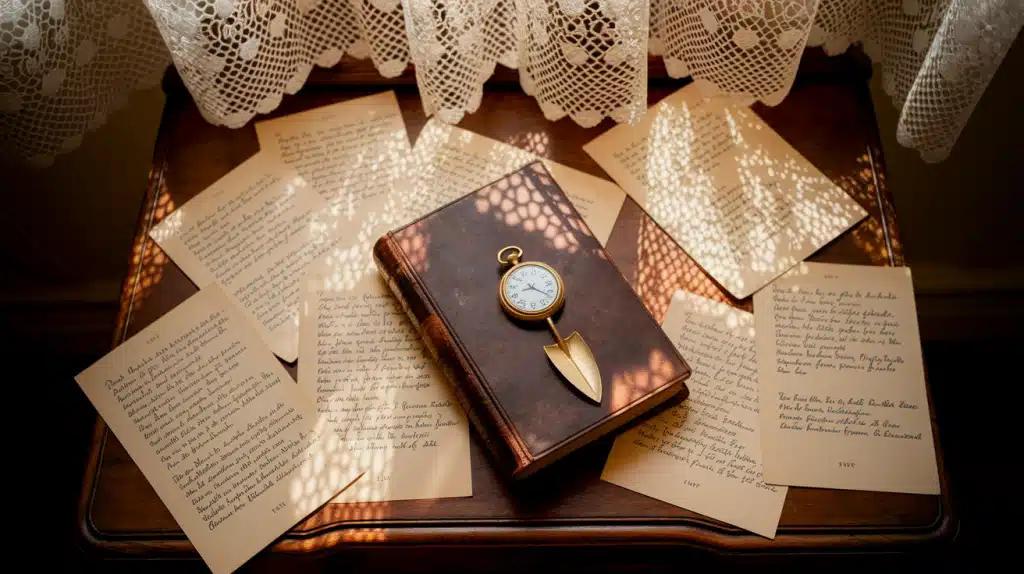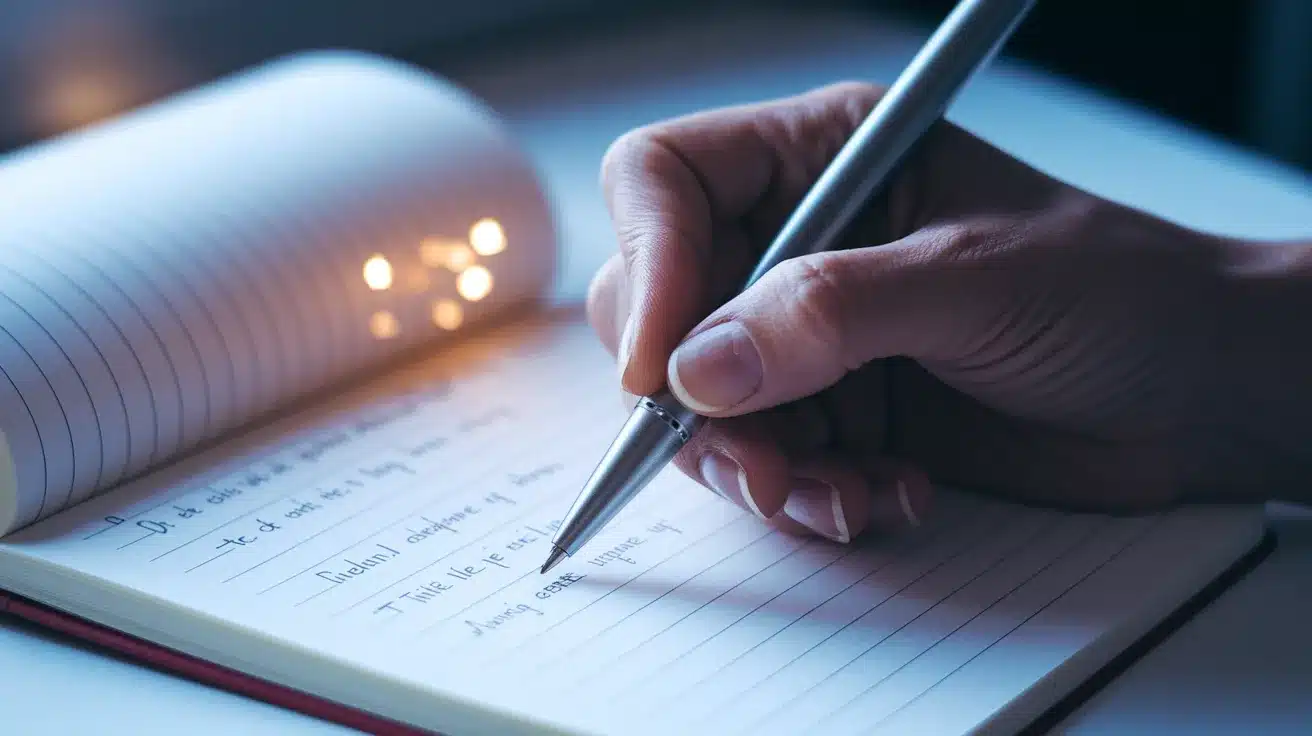Did you know that some of the most powerful poems hide entire verses within their lines? Golden shovel poetry takes words from beloved works and builds something entirely new around them. This technique lets writers honor literary giants while expressing their own voice.
Many poets struggle to find fresh ways to pay tribute to their influences. They want to connect with classic literature but don’t know how to make it personal. Traditional forms can feel restrictive or outdated.
Golden shovel poems solve this problem beautifully. They give you a structured yet flexible framework to create meaningful work. You can honor your favorite authors while telling your own story.
In this guide, you’ll learn the step-by-step process to write golden shovel poems. We’ll cover everything from choosing source material to crafting your final lines. Ready to blend tradition with your unique perspective?
Golden Shovel Poem Meaning
A golden shovel poem is a poetic form where each line ends with a word from another poem or text. When you read the final words of each line from top to bottom, they recreate the original source material word for word.
The technique gets its name from Gwendolyn Brooks’ famous poem “We Real Cool,” which ends with “We die soon.” Poet Terrance Hayes created the first golden shovel poem in 2010 as a tribute to Brooks. He used her entire poem as the foundation for his own work.
Here’s how it works in practice:
- Choose a line or poem you want to honor
- Write new lines that end with each word from your source
- The ending words must appear in the exact same order
- Your new poem should make sense on its own
The beauty lies in the dual reading experience. Readers can enjoy your original poem while also rediscovering the source material. It’s like finding treasure buried in plain sight.
Golden shovel poems typically maintain the original punctuation and capitalization of the source text in those final words. This preserves the integrity of the borrowed work while allowing your creativity to shine through.
Why Write in the Golden Shovel Form?

Golden shovel poems offer writers a perfect balance of structure and creative freedom. The form provides clear guidelines while still allowing your personal voice to emerge. This makes it ideal for both beginners and experienced poets.
1. Builds Your Writing Skills
The constraints force you to think creatively about word choice and sentence structure. You must craft meaningful lines that end with predetermined words. This challenge strengthens your ability to work within limitations a crucial skill for any writer.
You’ll develop better control over line breaks and rhythm. Each line must feel complete while building toward the borrowed ending word. This teaches you to pay attention to how poems flow and breathe.
2. Connects You to Literary History
Writing golden shovel poems creates a direct conversation with other writers. You’re not just reading their work, you’re actively engaging with it. This deepens your understanding of how great poems function.
You join a tradition of writers responding to each other across time. From ancient poets to contemporary voices, literature has always been a conversation. Golden shovel poems make you part of this ongoing dialogue.
3. Sparks New Ideas
The borrowed words often lead you in directions you wouldn’t normally explore. A single word from another poem might inspire an entirely different perspective or memory. This can break you out of creative ruts.
You might find fresh meaning in familiar texts. Working with someone else’s words line by line reveals new layers you missed before.
Step-by-Step: How to Craft Your Own
Creating a Golden Shovel poem is like building a mosaic each piece of the original line becomes a cornerstone of your new creation. Here’s how to do it:
Step 1: Choose Your Line
Start with a poem or line that speaks to you personally. The best golden shovel poems come from genuine connection to the source material. Pick something that has meaning in your life or work you admire.
Consider the length carefully. Short lines (3-8 words) work well for beginners. Longer passages create more complex poems but require more skill to handle effectively.
Pay attention to the rhythm and tone of your source.
- Strong, punchy lines often work better than flowing, gentle ones
- Lines with concrete nouns give you more to work with than abstract concepts
- Familiar quotes let readers enjoy the recognition factor
Test your choice by saying it out loud. Does it have natural pauses? Do the individual words inspire ideas? If a line feels flat when spoken, it might not energize your writing process.
Popular sources include:
- Classic poetry collections
- Song lyrics that moved you
- Memorable book quotes
- Speeches or famous sayings
Step 2: Break It Down
Write out your chosen line with each word on its own line. This visual layout helps you see the structure you’re working with. Number each word if that helps you stay organized.
Study each word individually. What images, memories, or emotions does each one trigger? Jot down quick notes next to each word. These initial thoughts often become the seeds of your new lines.
Look for challenging words early. Some words are harder to end lines with naturally. Identify these troublemakers now so you can give them extra attention later.
Example breakdown:
1. We
2. Real
3. Cool
4. We
5. Left
6. School
Notice patterns in your source material. Are there repeated words? Do certain words connect thematically? Understanding these relationships will help your poem feel cohesive.
Step 3: Build Your Own Poem
Start with the easiest lines first. Don’t feel pressured to write from beginning to end. Work on whichever lines inspire you most, then fill in the gaps.
Each line should make sense leading up to its ending word. Read each line aloud to make sure it flows naturally. Forced or awkward phrasing will weaken your poem.
Keep your overall theme in mind as you write. Your poem should tell a complete story or explore a unified idea. The borrowed words are building blocks, not random endpoints.
Use these techniques to create natural line endings:
- Make the borrowed word the subject of your line
- Use it as a strong verb or action word
- Let it complete a thought or image you started
- Build suspense that the word resolves
Don’t worry about matching the original poem’s theme. Your golden shovel can be about something completely different. The connection comes from the shared words, not shared meaning.
Step 4: Revise & Reflect
Read your complete poem out loud multiple times. Listen for awkward phrases, unclear meanings, or lines that don’t flow well. Your ears will catch problems your eyes miss.
Check that your poem works as a standalone piece. Cover up the source material and read only your new poem. Does it make sense? Does it move you? A good golden shovel poem succeeds on its own merits.
Test the borrowed words by reading them vertically. Make sure they recreate the original text exactly. Check spelling, punctuation, and capitalization.
Ask yourself these revision questions:
- Does each line earn its place in the poem?
- Are there stronger word choices you could make?
- Does the poem build toward something meaningful?
- Would someone who doesn’t know the source material still enjoy it?
Share your draft with trusted readers. Fresh eyes spot issues you’ve become blind to. Ask them to read it without knowing the source material first.
Make final adjustments based on feedback. Small tweaks to word choice or line breaks can make huge improvements. Don’t be afraid to rewrite lines that aren’t working.
Gold from the Lines: Iconic Golden Shovel Poems
See how poets turn borrowed brilliance into bold, original verse.
“The Golden Shovel” by Terrance Hayes
I. 1981
When I am so small Da’s sock covers my arm, we
cruise at twilight until we find the place the real
men lean, bloodshot and translucent with cool.
His smile is a gold-plated incantation as we
drift by women on bar stools, with nothing left
in them but approachlessness. This is a school
I do not know yet. But the cue sticks mean we
are rubbed by light, smooth as wood, the lurk
of smoke thinned to song. We won’t be out late.
Standing in the middle of the street last night we
watched the moonlit lawns and a neighbor strike
his son in the face. A shadow knocked straight
Da promised to leave me everything: the shovel we
used to bury the dog, the words he loved to sing
his rusted pistol, his squeaky Bible, his sin.
The boy’s sneakers were light on the road. We
watched him run to us looking wounded and thin.
He’d been caught lying or drinking his father’s gin.
He’d been defending his ma, trying to be a man. We
stood in the road, and my father talked about jazz,
how sometimes a tune is born of outrage. By June
the boy would be locked upstate. That night we
got down on our knees in my room. If I should die
before I wake. Da said to me, it will be too soon.
II. 1991
Into the tented city we go, we-
akened by the fire’s ethereal
afterglow. Born lost and cool-
er than heartache. What we
know is what we know. The left
hand severed and school-
ed by cleverness. A plate of we-
ekdays cooking. The hour lurk-
ing in the afterglow. A late-
night chant. Into the city we
go. Close your eyes and strike
a blow. Light can be straight-
ened by its shadow. What we
break is what we hold. A sing-
ular blue note. An outcry sin-
ged exiting the throat. We
push until we thin, thin-
king we won’t creep back again.
While God licks his kin, we
sing until our blood is jazz,
we swing from June to June.
We sweat to keep from we-
eping. Groomed on a die-
t of hunger, we end too soon.
Conclusion
Golden shovel poems bridge the gap between honoring literary tradition and expressing your unique voice. This form teaches you to work creatively within constraints while building stronger writing skills. You learn to pay attention to rhythm, word choice, and line breaks in ways that improve all your poetry.
The beauty of this technique lies in its accessibility. You don’t need years of training to start writing golden shovel poems. Anyone with a favorite quote or beloved poem can begin today. The structure guides you, but your personal experiences shape the final work.
These poems create lasting connections between past and present writers. When you craft a golden shovel poem, you join a conversation that spans generations. Your voice becomes part of the ongoing dialogue that makes literature alive and relevant.
Ready to try your hand at golden shovel poetry? Pick a line that moves you and start writing your first poem today. Share your creation in the comments below – we’d love to see what you create!









